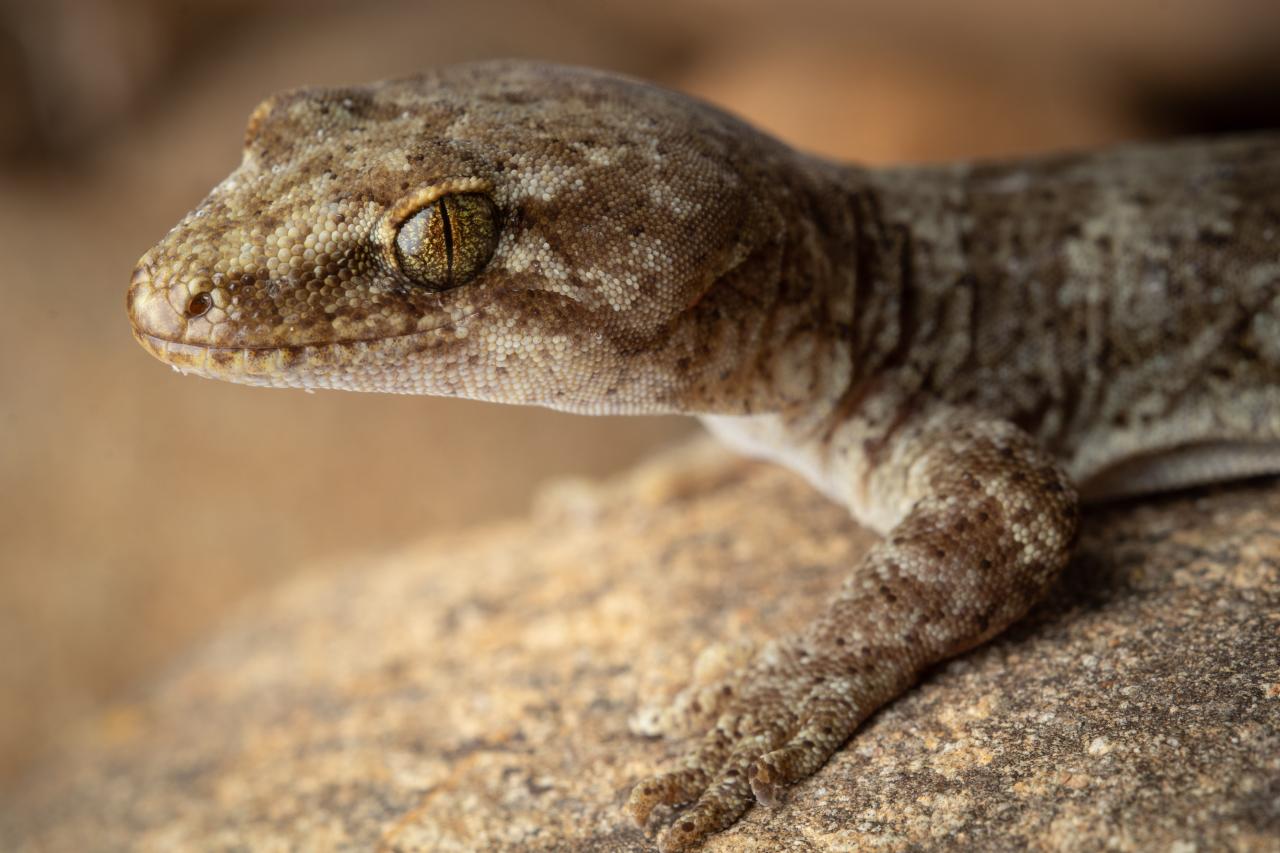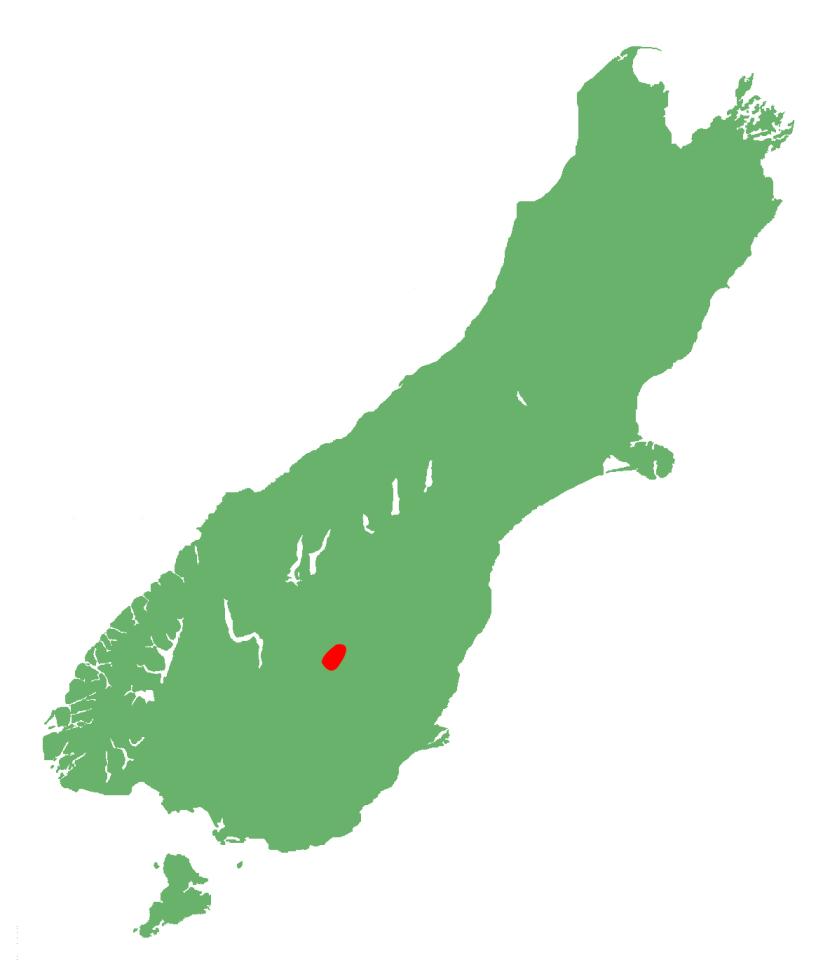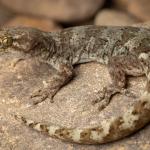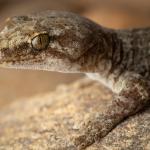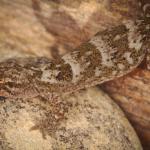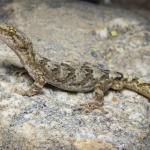- Home
- Herpetofauna Index
- Native
- Woodworthia "Raggedy"
Woodworthia "Raggedy"
Raggedy Range gecko
Woodworthia "Raggedy"
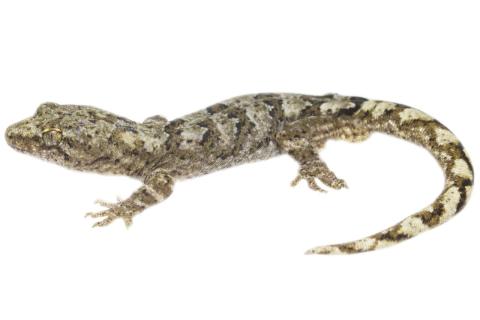
Length: SVL up to 72mm, with the tail being equal to the body length
Weight: unknown
Description
A recently-recognized species of Woodworthia that closely resembles some of its relatives. Their dorsal surface is generally grey, brown or olive-brown, with pale, transverse markings. Their ventral surface is typically pale grey or brown. Their mouth interior is pink, with a pink tongue.
Life expectancy
Unknown. Presumably long-lived like other Woodworthia (e.g. more than 25 years).
Distribution
This species is only known from the Raggedy Range, north of the Idaburn in Central Otago.
Ecology and habitat
Raggedy Range geckos are cathemeral, terrestrial, and most active at night. They can often be found hunting on the surfaces of schist outcrops or among boulder piles.
Social structure
Unknown. However, presumably similar to other, related, Woodworthia.
Breeding biology
Unknown. However, presumably similar to other, related, Woodworthia.
Diet
Predominantly insectivorous, but may also feed on the fruits of small shrubs.
Disease
Unknown.
Conservation strategy
This species is not being actively managed and is considered 'At Risk - Declining' (Hitchmough et al. 2025). There is very little known about their distribution. However, they appear to be reasonably abundant. Future conservation work will likely aim to learn more about the ecology, distribution, and behaviour of this species.
Interesting notes
The Raggedy Range gecko gets both its common and TAG names from its known locality - the Raggedy Range in Central Otago.
Raggedy Range geckos look very similar to some of their relatives but were only recently recognized as a distinct species.
The Raggedy Range gecko, along with its sister taxa (the kōrero gecko and mountain beech gecko) sit within the Southern clade of the Woodworthia complex, with the Southern Alps gecko and greywacke gecko being their closest relatives within the group.
References

